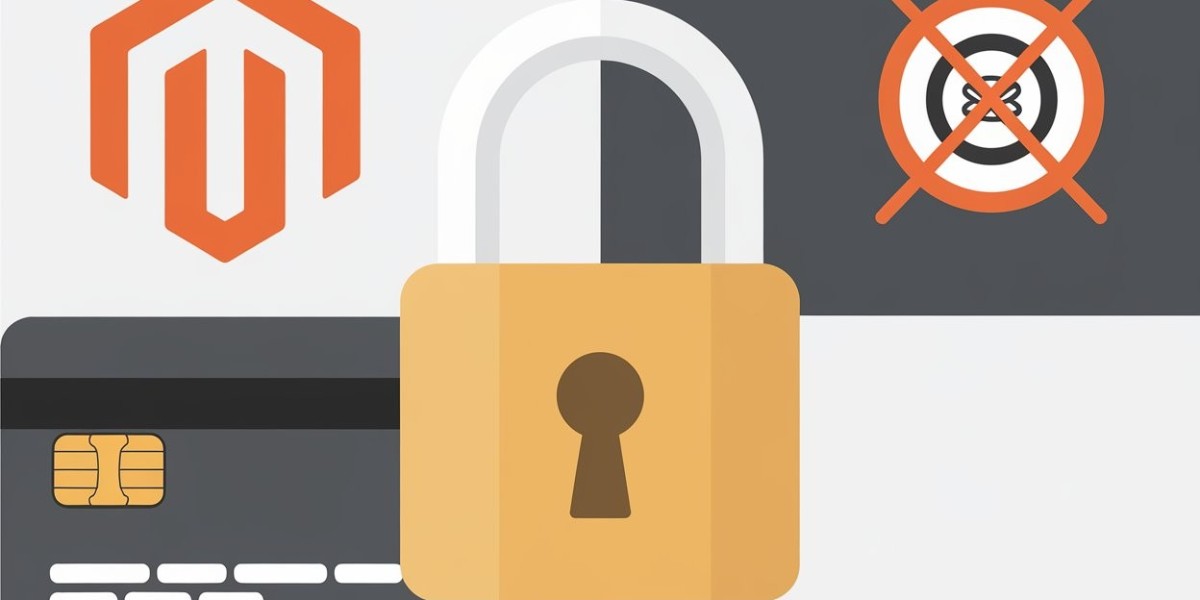Card payment attacks refer to unauthorized attempts by cybercriminals to access, steal, or manipulate credit card information from e-commerce stores. These attacks can cause significant financial loss, legal ramifications, and irreversible damage to your brand’s reputation.
Magento, being a widely-used eCommerce platform, is a prime target for these attacks. Hackers often use methods such as injecting malicious scripts, phishing attempts, or exploiting outdated security protocols to breach stores. Protecting your Magento store from such threats requires a proactive approach that includes using robust security measures and being aware of the latest attack vectors.
Common Types of Card Payment Attacks
To effectively protect your Magento store, it’s critical to understand the different types of card payment attacks that hackers frequently use. By familiarizing yourself with these methods, you can implement more robust security measures that prevent potential breaches. Let’s dive deeper into some of the most common card payment attack methods that specifically target eCommerce stores like Magento.
1. Magecart Attacks
Magecart attacks are one of the most prevalent and dangerous threats to Magento stores. This type of attack involves web skimming, where hackers inject malicious JavaScript code into your site’s payment pages. Once embedded, the script silently captures credit card information as customers input their details during checkout. These attacks are notoriously hard to detect because they don’t typically affect the store’s normal functionality.
To protect against Magecart attacks, it’s vital to:
- Regularly update your Magento store to ensure it has the latest security patches.
- Use Content Security Policy (CSP) headers to restrict which scripts can be executed on your store.
- Continuously monitor your website for any unauthorized code changes.
By staying vigilant, you can reduce the risk of your store being compromised by this type of attack.
2. Brute Force Attacks
In a brute force attack, hackers attempt to gain access to your Magento store's admin panel by systematically trying different username and password combinations. These attacks rely on the assumption that users have weak or easily guessable passwords. Once inside, attackers can change configurations, add malicious code, and even steal customer payment information.
Preventing brute force attacks requires implementing several layers of defense, such as:
- Strong password policies: Ensure that admin users have complex, unique passwords.
- Two-factor authentication (2FA): This adds an extra layer of security by requiring a second form of authentication in addition to the password.
- Limiting login attempts: Restrict the number of failed login attempts before locking out the user.
When it comes to managing security for your Magento store, hiring Magento 2 developers is a smart choice. They can help set up advanced security features that prevent unauthorized access and protect sensitive data.
3. Phishing
Phishing is a social engineering attack where hackers attempt to trick individuals into providing sensitive information, such as login credentials or credit card details. This is usually done through fraudulent emails or websites designed to look like legitimate ones. Phishing attacks can target both store owners and customers, resulting in stolen data or unauthorized transactions.
To safeguard your Magento store against phishing:
- Educate your team and customers about the signs of phishing emails, such as suspicious URLs, spelling mistakes, or urgent requests for personal information.
- Use Secure Sockets Layer (SSL) certificates to encrypt communications and ensure your customers feel confident when entering payment information on your website.
- Implement email security protocols, such as Domain-based Message Authentication, Reporting & Conformance (DMARC), to protect your store's domain from being used in phishing attempts.
Phishing can be especially harmful because it preys on human error. Therefore, education and technology should work hand in hand to keep your store safe.
4. SQL Injection
SQL injection is another common attack used by cybercriminals to exploit vulnerabilities in a Magento store’s database. In this type of attack, hackers insert malicious SQL code into input fields (such as search bars or login forms) to gain unauthorized access to your store’s database. Once inside, they can retrieve sensitive customer information, including payment card details, modify data, or even delete records.
To prevent SQL injection attacks, you should:
- Use parameterized queries to ensure that user input is not directly executed as part of an SQL statement.
- Implement strong input validation to filter out harmful data before it reaches the database.
- Regularly update your Magento store and install security patches to address known vulnerabilities.
SQL injection can be devastating, as it provides direct access to your store’s most sensitive data. Taking preventive measures ensures your store remains secure and compliant with data protection standards.
Recognizing these attack methods allows you to implement effective countermeasures, reducing the likelihood of a breach. By working with eCommerce experts and taking a proactive approach to security, you can better protect your store from the various threats lurking in the digital landscape.
Best Practices to Protect Your Magento Store
Securing your Magento store against card payment attacks requires a proactive, multi-layered approach. By following industry-standard best practices, you can ensure your store remains secure and your customers’ data stays protected. Here are the key measures every Magento store owner should implement:
1. Regularly Update Magento
Keeping your Magento platform up to date is one of the most critical steps in securing your store. Magento developers regularly release security patches and updates that fix vulnerabilities discovered in previous versions. Neglecting these updates could leave your store exposed to known threats that hackers can exploit.
- Why it matters: Outdated versions of Magento are more vulnerable to attacks such as SQL injection and Magecart.
- How to implement: Schedule routine checks for updates and apply them as soon as possible to keep your store running on the latest version.
2. Implement Two-Factor Authentication (2FA)
Two-factor authentication (2FA) provides an additional layer of security to your store's admin panel. By requiring both a password and a secondary verification method (such as a code sent to your mobile phone), 2FA reduces the risk of unauthorized access even if your password is compromised.
- Why it matters: It adds an extra barrier that hackers must overcome, making it harder for brute force attacks to succeed.
- How to implement: Enable 2FA on your Magento admin panel and encourage your users to activate 2FA for their accounts as well.
3. Use HTTPS for Secure Transactions
Secure Sockets Layer (SSL) certificates encrypt sensitive data transmitted between your store and your customers, such as payment details and login credentials. By switching your store to HTTPS, you not only protect sensitive information but also boost customer confidence.
- Why it matters: HTTPS ensures that data transferred over your site is encrypted, preventing interception by hackers.
- How to implement: Purchase and install an SSL certificate, and configure your Magento store to redirect all traffic from HTTP to HTTPS.
4. Enforce Strong Password Policies
Weak passwords are an open invitation for brute force attacks. To minimize the risk, enforce strong password policies for both admin accounts and customers. Encourage the use of complex passwords that include uppercase letters, numbers, and special characters.
- Why it matters: Strong passwords make it significantly harder for cybercriminals to guess login credentials, reducing the chances of unauthorized access.
- How to implement: Set up password strength requirements in Magento's admin panel and ensure regular password updates for all users.
5. Set Up a Web Application Firewall (WAF)
A Web Application Firewall (WAF) acts as a protective shield between your store and potential threats. It monitors and filters incoming traffic to detect and block malicious activities such as SQL injection, cross-site scripting (XSS), and brute force attacks.
- Why it matters: WAF provides real-time protection against a wide range of cyber threats, including card payment attacks.
- How to implement: Use reputable WAF services that integrate with your Magento store to enhance security at the application level.
6. Regular Data Backups
In the unfortunate event of a security breach, having regular backups in place can be a lifesaver. Data backups allow you to restore your Magento store to a previous, uncompromised state, minimizing downtime and the loss of sensitive information.
- Why it matters: Backups ensure that you can quickly recover from attacks such as ransomware or unauthorized data manipulation.
- How to implement: Automate your backup process to ensure your store’s data is regularly saved and stored in secure, off-site locations.
Security Extensions and Tools for Magento
Magento offers a variety of security extensions that can further protect your store from attacks. Some recommended tools include:
- Amasty Security Suite: Provides comprehensive security features like activity logging, automatic backups, and admin notifications for suspicious behavior.
- Watchlog Pro: Monitors login attempts and helps prevent brute force attacks by tracking suspicious login activities.
- Sift Science: An AI-powered fraud detection tool that helps prevent fraudulent transactions.
By integrating these tools, you can enhance the overall security framework of your store.
The Role of Regular Security Audits
Regular security audits are essential for identifying vulnerabilities in your Magento store’s infrastructure. Conducting audits allows you to:
- Identify and patch security holes before they can be exploited by hackers.
- Ensure PCI DSS compliance to maintain a secure payment environment.
- Review third-party extensions to ensure they don’t introduce vulnerabilities.
Frequent audits can act as preventive measures, safeguarding your store from potential breaches.
Importance of PCI Compliance
Compliance with the Payment Card Industry Data Security Standard (PCI DSS) is critical for eCommerce stores that handle credit card transactions. Being PCI compliant ensures that you:
- Follow stringent security protocols.
- Regularly monitor and test your network.
- Encrypt sensitive cardholder data during transmission and storage.
Failure to comply with PCI DSS can result in hefty fines and damage to your store’s reputation. Make sure your Magento store meets all the requirements to maintain trust with your customers.
How Hiring Magento 2 Developers Can Strengthen Security
When it comes to implementing advanced security features, hiring Magento 2 developers can be a game-changer. These developers specialize in Magento’s architecture and can help:
- Identify and fix vulnerabilities specific to your store’s custom setup.
- Implement advanced security measures, such as custom firewalls and encryption protocols.
- Optimize the performance of your Magento store without compromising security.
A Magento 2 expert ensures that your store’s security is always a step ahead of emerging threats. If you’re serious about protecting your store, investing in the right team of eCommerce experts is essential.
Protecting your Magento store from card payment attacks requires diligence, the right tools, and a strategic approach to security. By following these steps and leveraging the expertise of Magento 2 developers, you can ensure that your store remains secure, trustworthy, and resilient against cyber threats.



